Living in Florida can make you think that winter skincare is optional. However, even in a milder climate like ours, the cold weather can significantly affect the skin, especially the hands, legs, and feet.
In winter, temperatures can drop below 20 degrees and sometimes even lower. Surprisingly, even when the weather is relatively warmer, with temperatures in the 40s to 50s, I still experience dry, flaky, and itchy skin.
As we age, taking care of our skin during this time becomes increasingly important. Many of us strive to maintain a youthful appearance, and having a proper skincare routine can significantly contribute to achieving this goal.
Paying attention to daily skincare and having a healthy diet can make a significant difference.
In this blog, I’ll share practical tips to help you maintain healthy and glowing skin throughout the winter. We will also debunk some common skincare myths related to the colder season and reveal the truth behind them.
Myth 1: You Don’t Need Sunscreen in Winter

There’s a widespread myth that you can skip sunscreen during winter. But let’s set the record straight on that.
Fact: The sun’s UV rays are as intense in winter as in summer. Remember that snow can reflect significant UV rays, increasing your exposure in snowy areas.
Tip: Always use sunscreen with an SPF of at least 30, regardless of the season. This level of protection blocks approximately 97% of UVB rays and is suitable for daily use, helping prevent skin damage and premature aging.
Case Study: Consider Sarah’s experience. She neglected regular sunscreen use during winter vacation and developed sunspots.
Similarly, James learned the hard way about the dangers of underestimating winter sun exposure, leading to skin damage. These examples highlight the importance of consistent sunscreen use throughout the year.
Myth 2: Drinking More Water Will Keep Your Skin Hydrated

It’s a common belief that if you drink enough water, your skin will stay hydrated, especially in the colder months. However, there’s more to the story.
Fact: Staying adequately hydrated by drinking water is essential for overall health and skin hydration. However, it’s important to understand that the dry air can strip moisture from your skin during winter.
Tip: Applying a moisturizer regularly, along with your routine of staying hydrated, is vital to keeping your skin healthy in winter.
Case Study: Emma, keen on skincare, used to rely solely on drinking water for skin hydration but found her skin still became dry and flaky.
Conversely, David discovered that combining regular hydration with consistent use of a moisturizer significantly improved his skin condition.
Myth 3: Hot Showers Help Combat Dry Skin in Winter

There’s nothing like a hot shower to beat the winter chill, but here’s the cold truth.
Fact: While hot showers can be soothing during the winter months, it’s crucial to realize that they may not be the best choice for maintaining healthy skin.
According to the American Academy of Dermatology, hot water can strip your skin of its natural oils, worsening dryness and causing irritation.
Tip: To protect your skin from tightness, discomfort, and dryness, consider opting for lukewarm showers. This temperature choice helps preserve your skin’s essential oils and maintains the protective moisture barrier.
Case Study: Lisa, who preferred hot showers, unfortunately, experienced the negative effects on her skin, leaving it feeling tight and uncomfortable. In contrast, Michael successfully improved his skin by switching to lukewarm showers.
Myth 4: You Don’t Need to Exfoliate in Winter
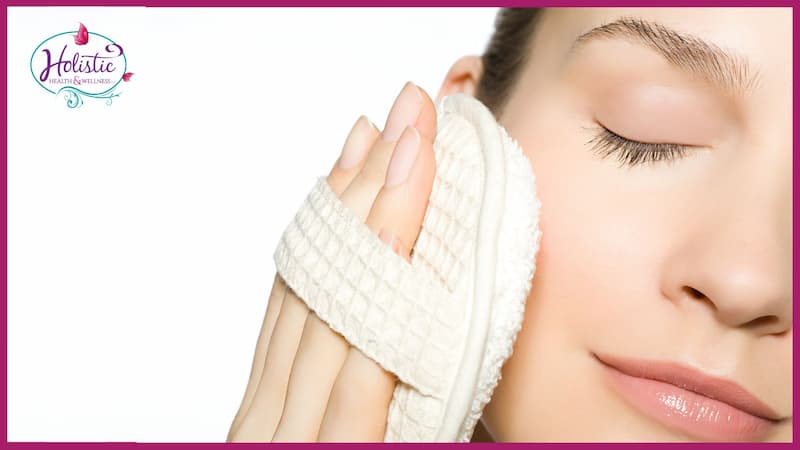
There’s a common misconception that cold weather eliminates the need for exfoliation. Here’s the truth:
Fact: Cold weather can cause a buildup of dead skin cells, leading to dullness and rough patches. As Paula’s Choice emphasizes, following a controlled exfoliation routine can bring numerous benefits.
Tip: Regularly use a gentle exfoliator to keep your skin vibrant and smooth during winter.
Case Study: Take Emily’s story, for instance. Regular exfoliation helped her overcome winter-induced rough patches. On the other hand, Daniel learned that over-exfoliation worsened his dryness until he switched to a gentler routine.
Myth 5: Indoor Heating Systems Hydrate the Skin
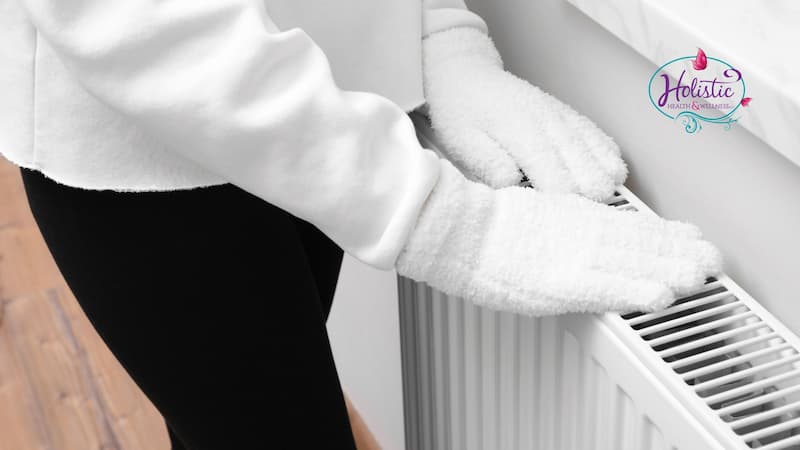
Indoor heating can make us believe it keeps our skin hydrated, but it’s the opposite.
Fact: Indoor heating reduces humidity, causing dry skin. The American Academy of Dermatology recommends maintaining proper indoor moisture for healthier skin.
Tip: Consider adding a humidifier to combat the dryness from indoor heating during winter. Placing bowls of water near heat sources or using houseplants can also boost humidity for healthier skin.
Case Study: Olivia, a winter skincare study participant, found relief from dry skin using a humidifier. In the same study, Chris experienced an improvement in his eczema with the adoption of the same solution.
Myth 6: Skipping Sunscreen on Cloudy Days is Safe

While it’s tempting to skip sunscreen on cloudy days, clouds don’t block all UV rays.
Fact: Even on overcast days, harmful UV rays can penetrate and cause skin damage, as highlighted by the Skin Cancer Foundation.
Tip: Wear SPF 30 broad-spectrum sunscreen daily, regardless of the weather, and remember to reapply every two hours, especially during prolonged outdoor activities.
Case Study: Jessica, a beach enthusiast, thought she was safe on a cloudy day without sunscreen, only to experience sunburn. On the other hand, Mark prioritized sun protection and successfully avoided skin damage.
Myth 7: All Lip Balms Are Equally Effective
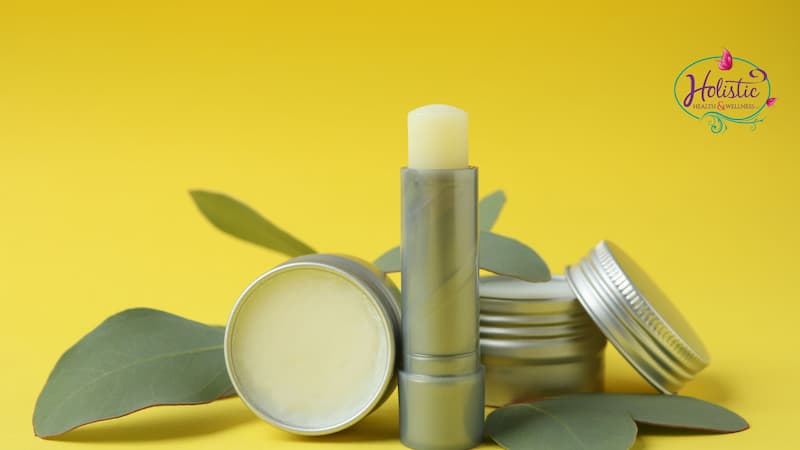
Not all lip balms provide the same level of protection and hydration, even though they may look similar on store shelves.
Fact: Certain lip balms may contain ingredients that worsen dryness. Selecting products containing moisturizing components such as shea butter or coconut oil is advisable.
Tip: Choose lip balms enriched with natural emollients like shea butter, coconut oil, or beeswax to ensure your lips remain hydrated and protected against harsh winter conditions. Consistent application is vital in preventing chapped, dry lips.
Case Study: Natalie frequently endured cracked lips during winter. However, after switching to a lip balm infused with shea butter, she noticed a significant improvement in her lips, experiencing softer, more nourished lips even in cold weather.
Myth 8: Oily Skin Doesn’t Need Moisturizer in Winter
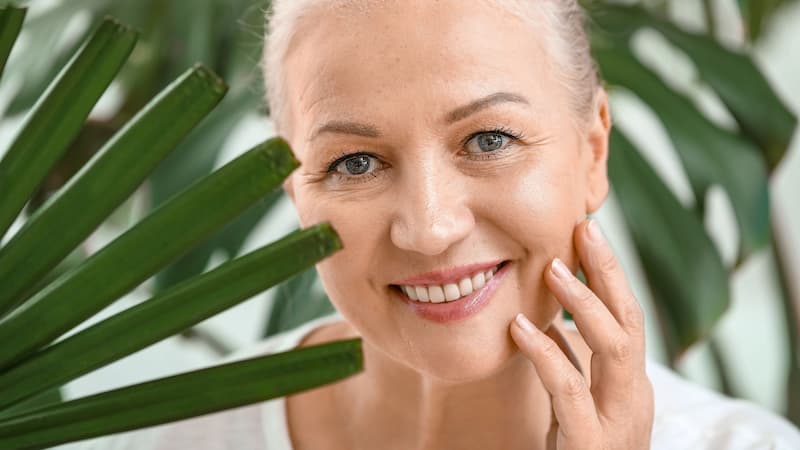
It’s a common misconception that if you have oily skin, you can skip moisturizer in the winter, but the reality is quite different.
Fact: Contrary to popular belief, even oily skin requires hydration during the winter months. Cold air and indoor heating can deplete moisture, leaving even oily skin types vulnerable to dryness.
Tip: Opt for lightweight moisturizers that provide hydration without causing clogged pores. Look for formulations for oily skin that help balance moisture levels and maintain overall health.
Case Study: Alex, who naturally had oily skin, used to avoid moisturizers during winter, resulting in dehydrated and lackluster skin. However, after incorporating a lightweight, oil-free moisturizer into her routine, she noticed her skin became more balanced, less oily, and more radiant.
Myth 9: Winter Acne is Caused by Not Washing Your Face Enough
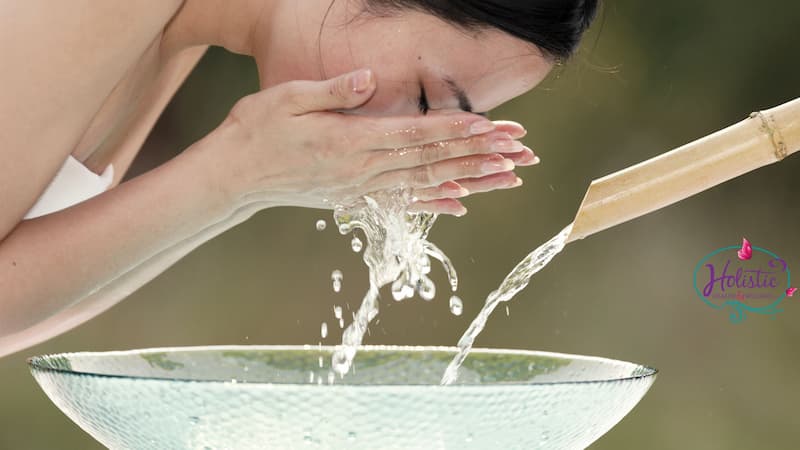
It’s a common misconception that winter acne results from inadequate face washing, but excessive cleansing can have adverse effects.
Fact: Over-cleansing can disrupt the skin’s natural barrier, increasing oil production and potential breakouts. Gentle cleansing is crucial, especially in winter when the skin is more prone to dryness.
Tip: Choose a mild, hydrating cleanser and avoid over-washing. Preserving the skin’s natural oils is essential for maintaining a healthy skin barrier and preventing acne.
Case Study: Kevin used to wash his face multiple times a day during winter to combat acne. However, this routine only aggravated his skin condition. His skin’s health improved significantly once he switched to a milder cleanser and reduced his washing frequency.
Myth 10: Skincare Products Work Better if You Apply More

Many believe using more skincare products improves results, but excessive use can harm the skin.
Fact: Contrary to this belief, using an excessive amount of skincare products can lead to skin irritation and product buildup, which can ultimately harm the skin.
Tip: Apply skincare products in moderation, following the recommended usage guidelines. A small amount, like a pea-sized portion of most creams and serums, is sufficient to cover the face and neck effectively.
Case Study: Grace used to apply large amounts of anti-aging creams, believing it would accelerate results, but instead, this practice resulted in clogged pores and skin irritation. After reducing the quantity and adhering to the product guidelines, she saved money and experienced improved skincare results.
Taking care of your skin during the winter is essential for maintaining a youthful appearance, even in milder climates like Florida. By dispelling these myths and adopting a well-informed skincare routine, you can effectively address winter-related challenges and keep your skin healthy.
This is particularly important for middle-aged women who may have specific skincare needs. Remember, the key to flourishing winter skincare is understanding your skin’s unique requirements and adjusting your routine accordingly.
With these tips and insights, you’re well-equipped to enjoy radiant and nourished skin all season long, which, let’s face it, is of utmost significance for middle-aged women who want to maintain a vibrant and age-defying complexion.
If you need some help in attaining that vibrant, age-defying body from the inside-out, then I’d love to chat.
Schedule your HEALTHY LIFE focus session with me today. This is a free call and by the end of it, you’ll have some Next Step Strategies, a free tool or two to get you started, and a simple Action Plan to set you up for success with your health. I’m here to help.
How? Simply reply to this email and put “Healthy-For-Life” Strategy Chat in the subject line or book your strategy call >>here.<<



